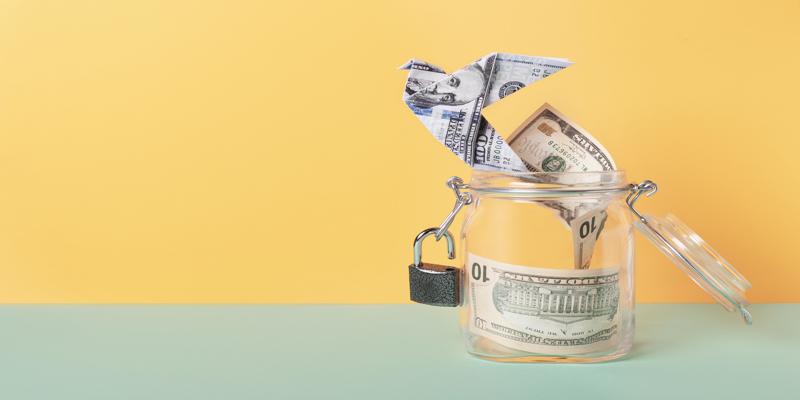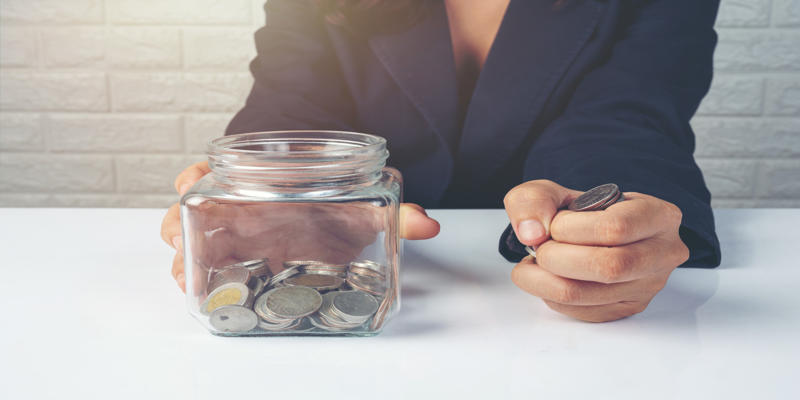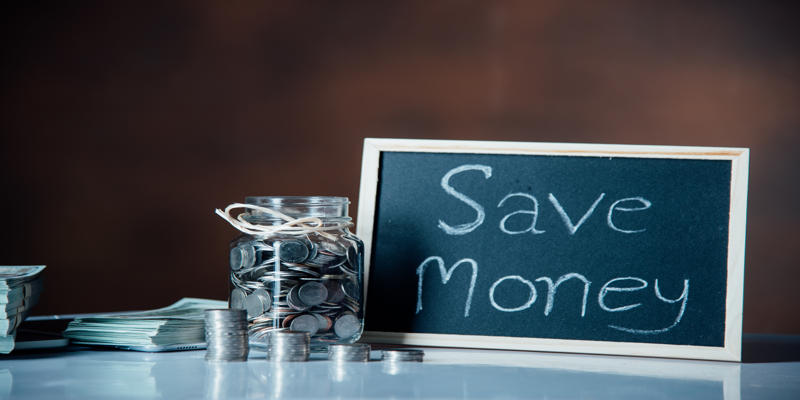Advertisement
Our banks are trusted to keep our money safe, but have you ever wondered if it's earned? As we have all the different types of risks around in the world from cyber attacks to bank failures to even financial scams, it is a natural instinct to wonder if your money is as secure as you think it is.

The great news is that most banks will do everything in their power to protect your money and there are several layers of security to ensure it stays safe. However, how safe is your money actually? Let's break it down.
If you deposit money in a bank, it does not just sit there unprotected. Your funds are protected from theft, fraud and other risks through a combination of physical, as well as digital, security measures put up by banks. Your bank is always looking out for your assets from the advanced encryption to the secured vaults.
Banks have state of the art cybersecurity systems to help prevent online threats, first and foremost. They are meant to prevent and realise if unapproved access has occurred on your bank account, from keeping the hackers away. The other side is physical security too. Physical cash is protected round the clock inside the high secured vaults of banks through high surveillance.

Internal security also has policies in banks. For example, workers must pass serious background checks and undergo lots of training to avoid mishandling of funds. Furthermore, the banks must adhere to regulatory standards like AML (anti money laundering) to curb activities related to fraud and other illegal activities.
In the unlikely event that a bank fails, how will you get your money back? This is where deposit insurance comes into play. In many countries, including the U.S. with the Federal Deposit Insurance Corporation (FDIC), deposits are insured up to a certain limit—usually around $250,000 per depositor, per bank. This means that if your bank were to go under, your money would be protected, up to that limit.
This insurance is a crucial safety net that helps maintain confidence in the banking system. It reassures depositors that, even if a bank collapses, their hard-earned savings won’t vanish into thin air. While deposit insurance can provide peace of mind, it’s important to note that it doesn’t cover everything—such as investments in stocks or bonds—but it covers the funds you keep in checking and savings accounts.
Deposit insurance also plays a key role in promoting overall financial stability. By guaranteeing that individuals will recover their deposits up to the insured limit, it helps prevent panic in the event of a bank's closure. Without this safety net, widespread fear could lead to runs on banks, where large numbers of customers rush to withdraw their funds, exacerbating financial instability. In essence, deposit insurance not only protects individual depositors but also safeguards the broader economy, ensuring that confidence in the banking system remains strong even in turbulent times.
While your money is generally safe in the bank, no system is entirely without risk. There are a few potential threats to your funds that you should be aware of. One of the biggest risks in today’s digital age is cybercrime. Hackers are constantly finding new ways to access bank systems, steal data, or even transfer funds from one account to another.
Even with advanced security protocols, banks can sometimes fall victim to data breaches. When this happens, personal information may be compromised, and accounts may be targeted for theft. That’s why it's crucial to take steps to protect your accounts, such as using strong, unique passwords, enabling two-factor authentication, and regularly monitoring your bank statements for suspicious activity.
Another risk involves fraud. Scammers often try to trick people into giving out personal details or making false transfers. These fraudsters may impersonate bank representatives, using phone calls, emails, or fake websites to steal information. It’s essential to stay vigilant and verify any request for money or personal data, especially if it feels out of the ordinary.
While banks provide multiple layers of security, there are several things you can do to ensure your money stays safe. Start by choosing a bank with a strong reputation for security. Look for banks that offer robust encryption, multi-factor authentication, and other protective measures for online banking. You might also want to consider using a credit union, which typically offers similar protections and can sometimes be more responsive to customer needs.

When it comes to protecting yourself from fraud, always be cautious about sharing your personal information. Avoid clicking on links in unsolicited emails or texts, and never share your PIN or password with anyone. It’s also important to regularly check your accounts for any unauthorized transactions, and report anything suspicious immediately.
Another way to increase your financial security is by diversifying your assets. Instead of keeping all your savings in one bank, consider spreading them across different accounts or even different types of assets. This can reduce the risk of losing everything if one institution were to fail. Plus, diversifying your funds might also help you take advantage of better interest rates or other financial benefits.
While no system is entirely without risk, the measures banks put in place to protect your money are robust and reliable. From digital security systems to insurance protection, banks take extensive steps to keep your funds safe. However, it’s also crucial to stay proactive in safeguarding your personal information and understanding the risks involved. By taking these steps and staying informed, you can feel confident that your money is secure in the bank.
Advertisement

By Susan Kelly/Mar 17, 2025

By Aldrich Acheson/Dec 19, 2024

By Celia Shatzman/Apr 01, 2025

By Paula Miller/Oct 23, 2024

By Maurice Oliver/Jan 15, 2025

By Kristina Cappetta/Oct 22, 2024

By Madison Evans/Oct 21, 2024

By Tessa Rodriguez/Jan 07, 2025

By Elva Flynn/Dec 25, 2024

By Susan Kelly/Dec 21, 2024

By Maurice Oliver/Oct 22, 2024

By Aldrich Acheson/Nov 08, 2024